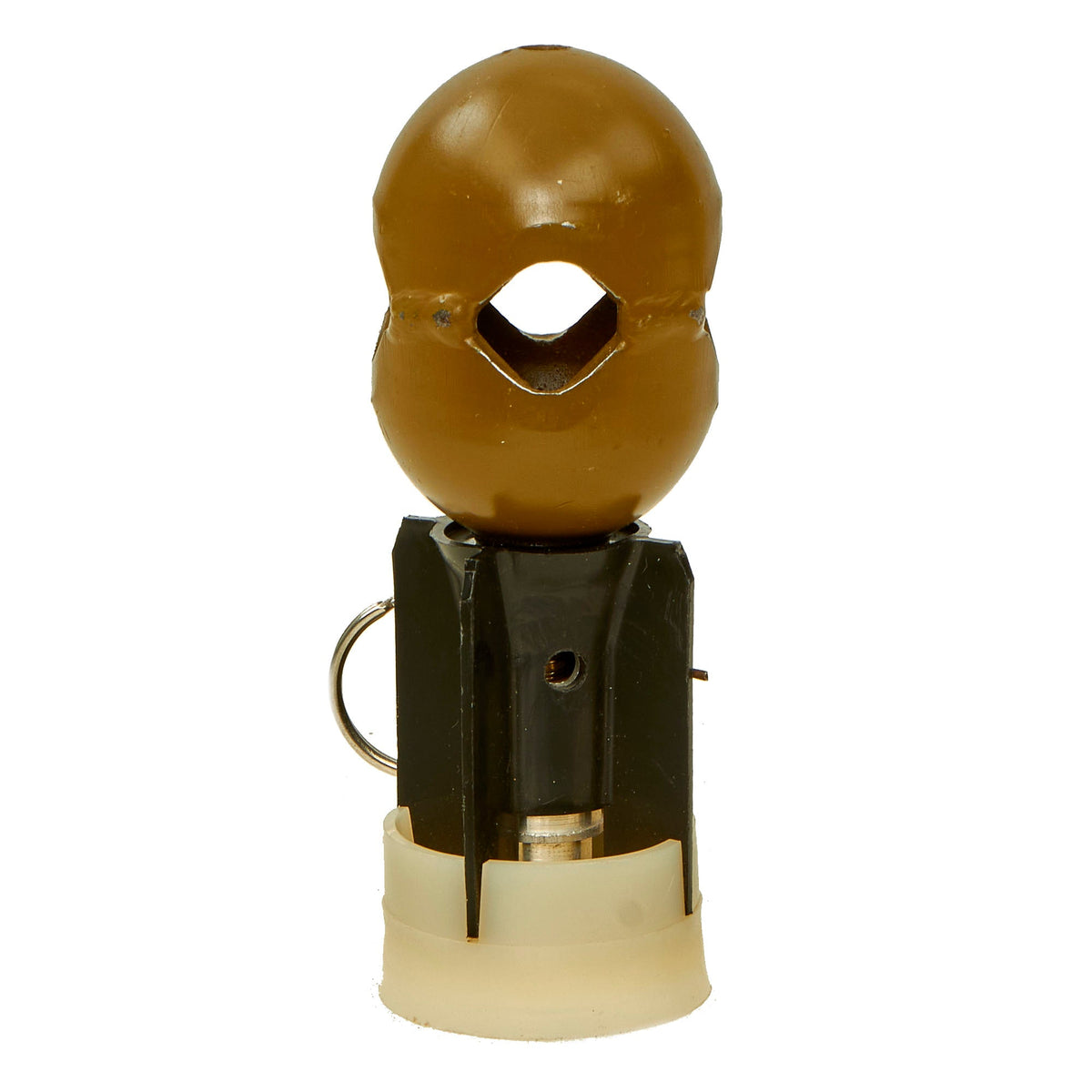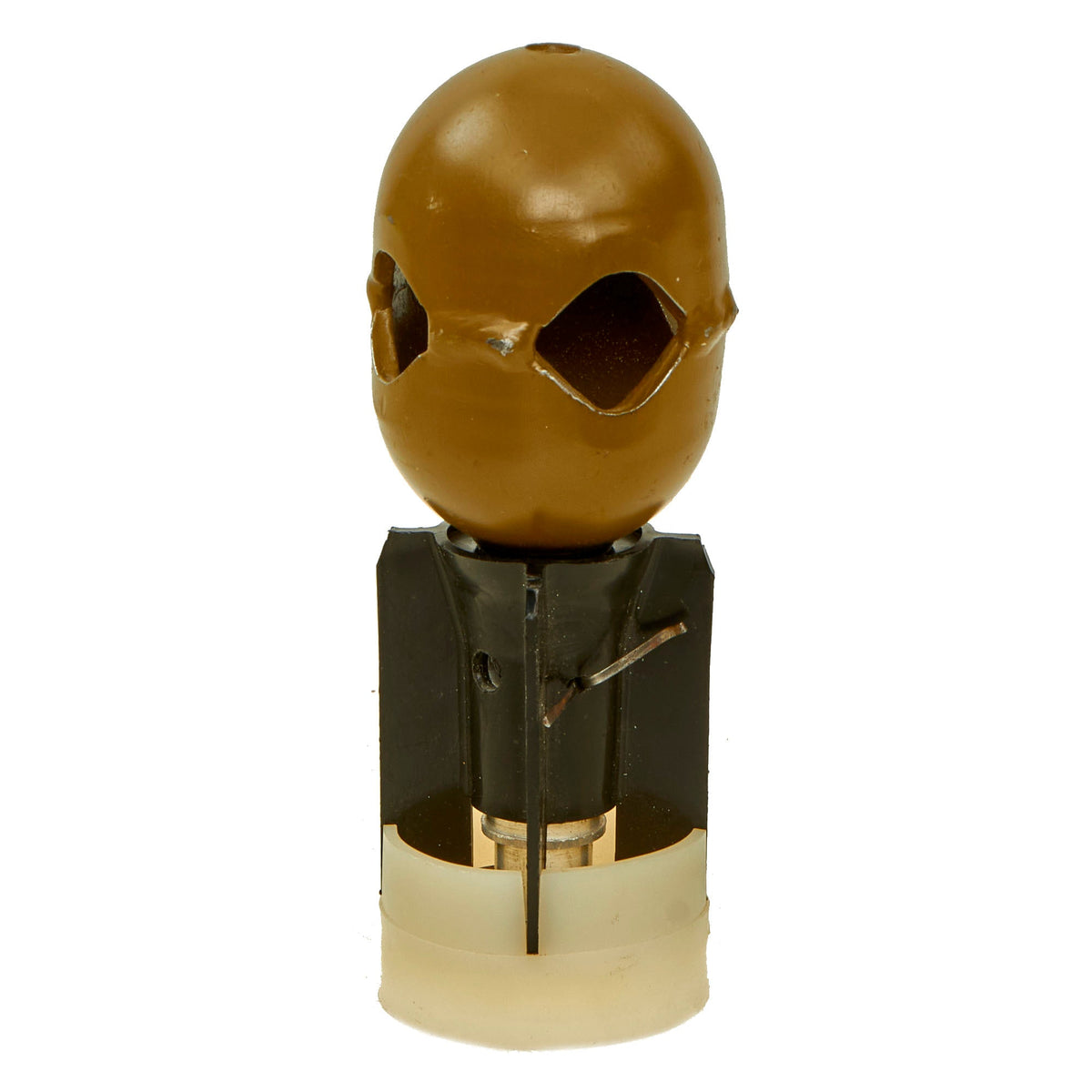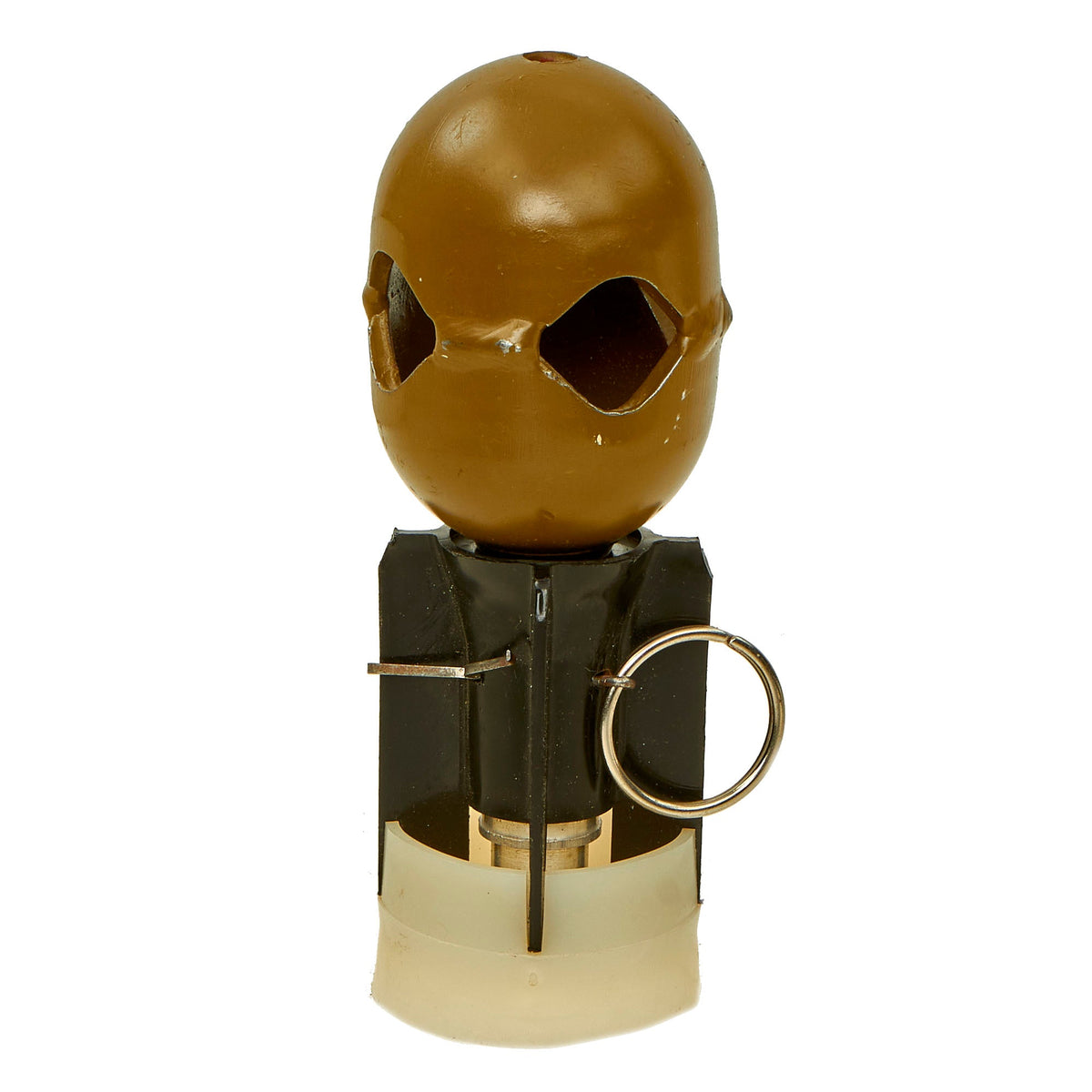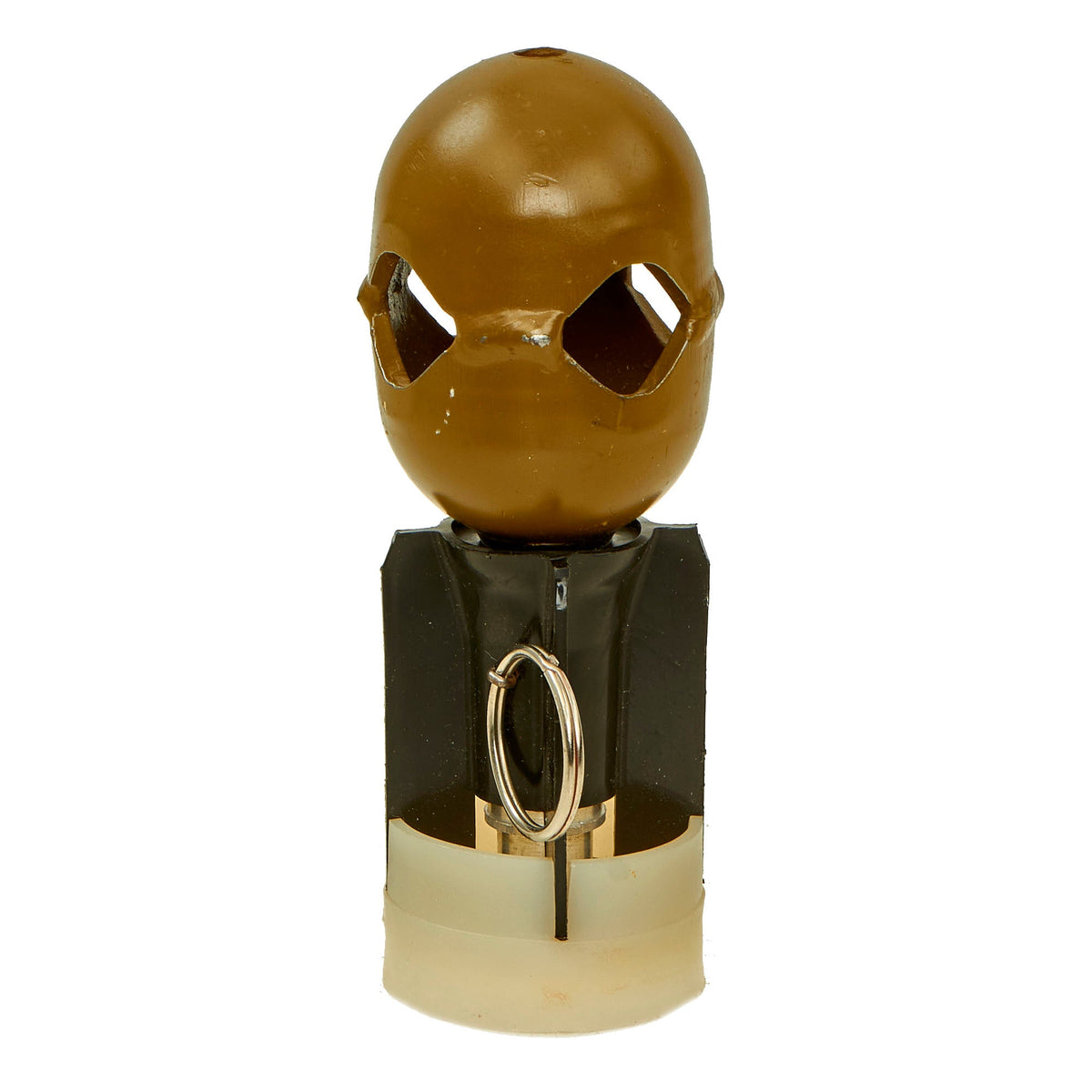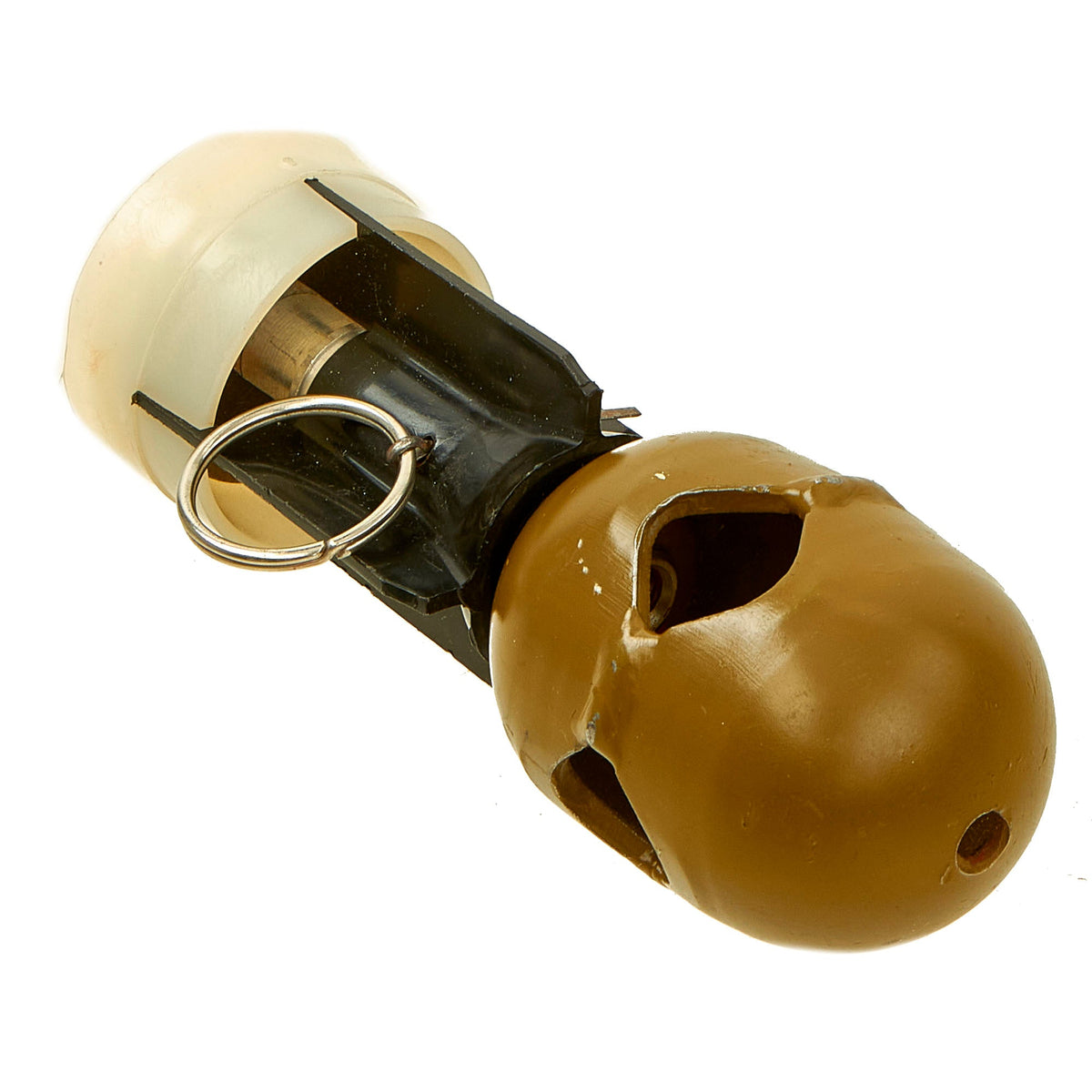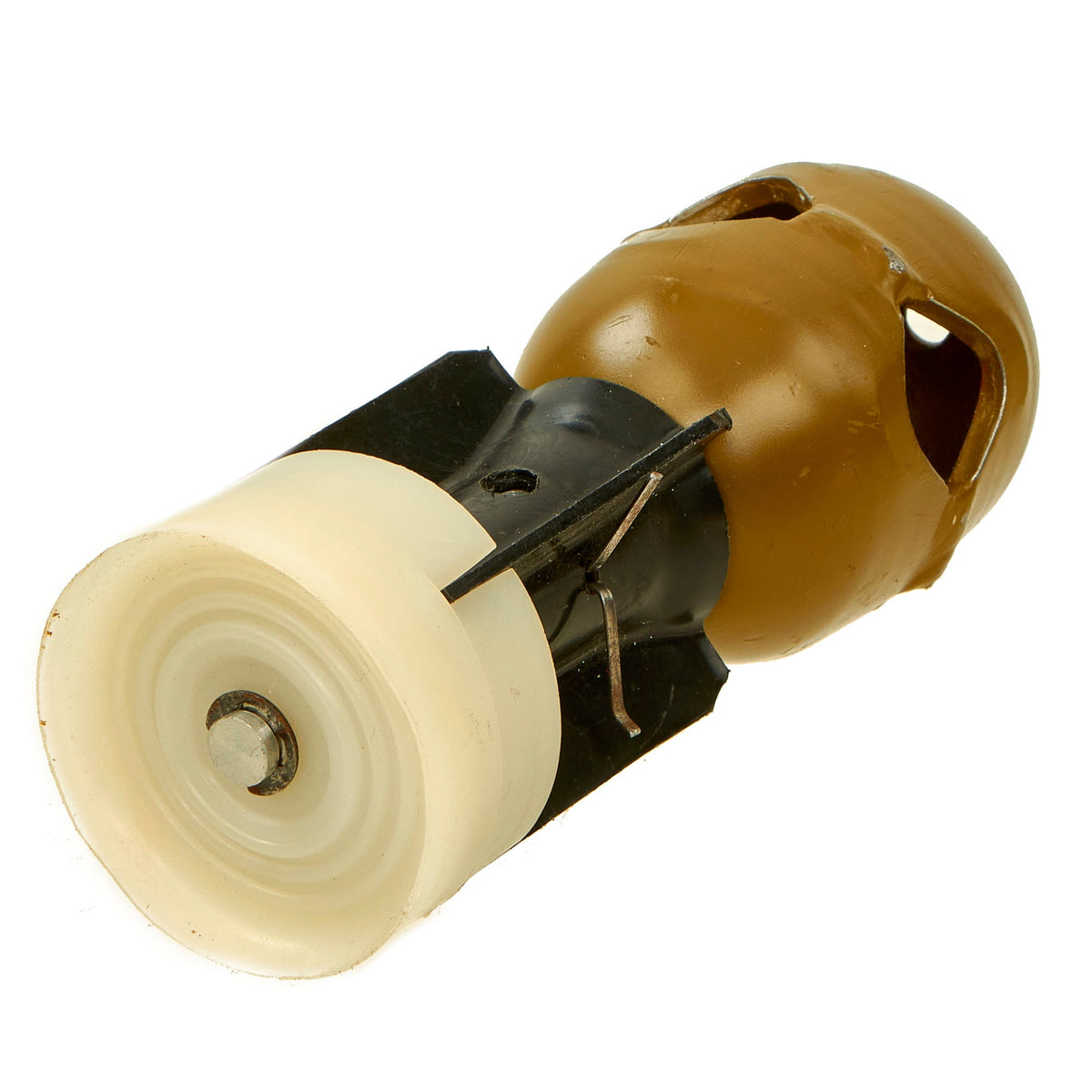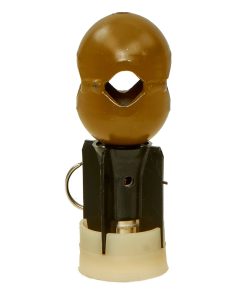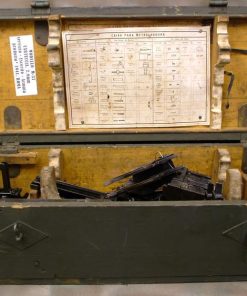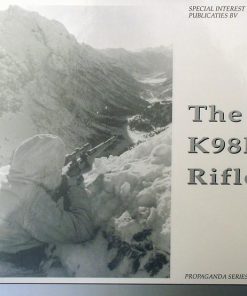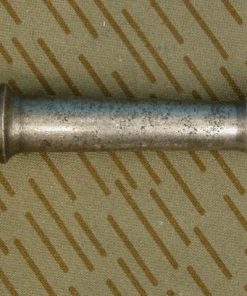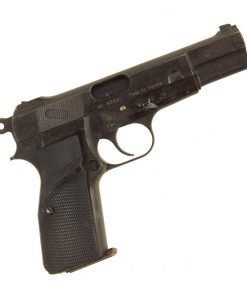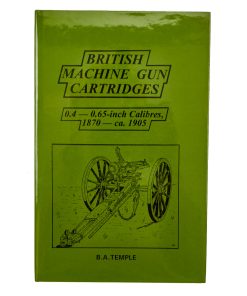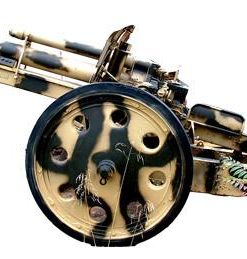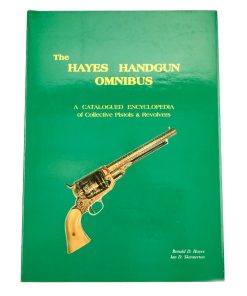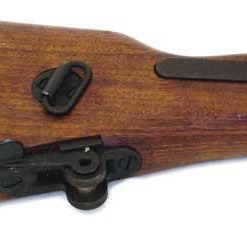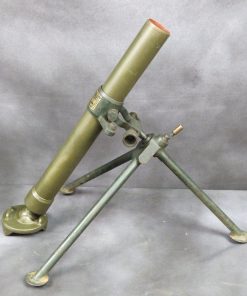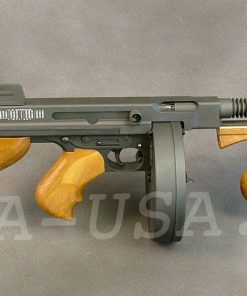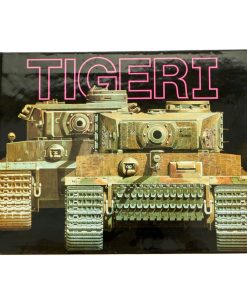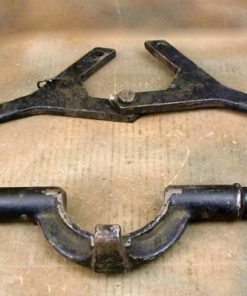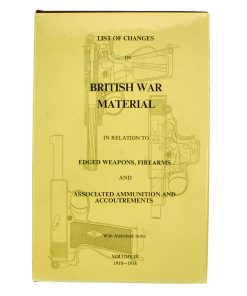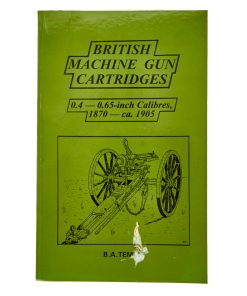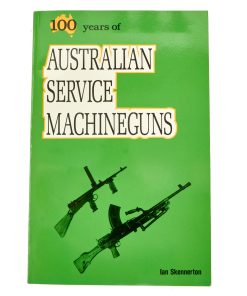Original East German Cold War Era AK47/AKM Inert RGD-5 Cup Discharged Practice Rifle Grenade Original Items
$ 295,00 $ 118,00
Original Item: Only One Available. Now this is a rare cup discharged rifle grenade! Information is about as rare as the grenade itself, but what we did discover is that this is an East German RGD-5 practice grenade, repainted green. To keep the known German pattern, this practice grenade has the respective cut holes and was originally red.
Unloaded or dummy grenades, artillery shell casings, and similar devices, which are cut or drilled in an BATF-approved manner so that they cannot be used as ammunition components for destructive devices, are not considered NFA weapons. This example is in total compliance and is NOT AVAILABLE FOR EXPORT.
After World War II, Germany was split into East and West. East Germany maintained close ties to Russia and the Warsaw Pact Nations, while West Germany was aligned with NATO. This made Germany a focal point of the Cold War. The contentious situation forced the East Germans to build and maintain a strong and well armed military which eventually led to agreements with the Russians to produce their own Kalashnikov rifles under license in 1957.
The German Democratic Republic (GDR) began initial development of the Kalashnikov in 1958 in the Weisa (Weida) Factory, a small town in Thuringia Germany, in the Erz (Erzgebirge) mountain region, about 2 hours East of Suhl, the more common small arms producer of the GDR (VEB Ernst-Thalmann-Werk Suhl). The Weisa Factory (VEB Gerate-Und Werkzeugbau Weisa) was a sub factory of the Suhl plant that operated under the same “VEB” banner, which means “People Owned”. This was likely to help mask the true nature of its operations. More on that in a minute. Manufacturing of several small parts were outsourced to other factories throughout East Germany but the primary assembly of Kalashnikov rifles was done at the Weisa Plant.
As you can see from the design of this rifle grenade, it’s very Soviet in appearance. The warhead itself is essentially a thicker version of the RGD-5 grenades, however there is a fin stabilizer assembly and a “cup” on the bottom to better create a seal. As stated above, the grenade was originally red and can be seen on the interior, however this was painted in the standard “Soviet Green”, more than likely done so by a previous collector who wasn’t aware of the origin.
No collection is complete without that one mysterious piece of ordnance on display! Comes more than ready for further research and display.
Fast Shipping with Professional Packaging
Thanks to our longstanding association with UPS FedEx DHL, and other major international carriers, we are able to provide a range of shipping options. Our warehouse staff is expertly trained and will wrap your products according to our exact and precise specifications. Prior to shipping, your goods will be thoroughly examined and securely secured. We ship to thousands clients each day across multiple countries. This shows how we're dedicated to be the largest retailer on the internet. Warehouses and distribution centres can be located throughout Europe as well as the USA.
Note: Orders with more than one item will be assigned a processing date depending on the item.
Before shipping before shipping, we'll conduct a thorough inspection of the items you have ordered. Today, the majority of orders will be delivered within 48 hours. The delivery time will be between 3-7 days.
Returns
The stock is dynamic and we cannot completely manage it because multiple stakeholders are involved, including our factory and warehouse. So the actual stock may alter at any time. It's possible that you may not receive your order once the order has been made.
Our policy is valid for a period of 30 days. If you don't receive the product within 30 days, we are not able to issue a refund or an exchange.
You can only return an item if it is unused and in the same state as the day you received it. You must have the item in its original packaging.
Related products
Uncategorized
Uncategorized
Uncategorized
Uncategorized
Uncategorized
Band of Brothers ORIGINAL GERMAN WWII Le. F.H. 18 10.5cm ARTILLERY PIECE Original Items
Uncategorized
Angolan Rebel 1970s era 60mm Inert Display Mortar from Angolan Civil War Original Items
Uncategorized
Uncategorized
Uncategorized
Australian WWII Owen MK1 Machine Carbine SMG Custom Fabricated Replica with Sling Original Items
Uncategorized
Uncategorized
Uncategorized
Uncategorized
